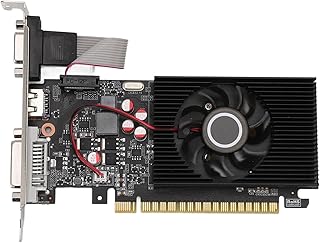As the PC market braces for potential tariffs, consumers may soon face the reality of higher prices for essential hardware components like graphics cards and processors. According to a recent report by Jon Peddie Research, the impending tariffs could trigger a market downturn, leading to increased costs for PC enthusiasts. The study highlighted a modest increase in CPU shipments but cautioned that the proposed tariffs could significantly impact the industry’s future.
The looming threat of tariffs has been a subject of concern, with estimates suggesting that prices for laptops and tablets could surge by up to 45%. The Consumer Technology Association’s projections, based on the initial proposed tariffs on China, paint a grim picture for consumers. However, the situation has escalated further, with the Trump administration extending the tariff proposals to include countries like Canada and Mexico, intensifying the potential economic strain on the PC market.
In response to the uncertain landscape, PC hardware companies are strategizing to mitigate the impact of tariffs on their products. For instance, Intel recently announced the production of its Arc B580 desktop graphics card in Vietnam, a move aimed at bypassing potential tariffs. Vietnam has emerged as a key manufacturing hub for PC hardware, offering a strategic alternative to Chinese production amidst trade tensions.
Despite being designed by U.S.-based companies like AMD and Nvidia, most PC hardware is manufactured overseas, predominantly in countries like China, Mexico, and Vietnam. If the proposed tariffs materialize, the repercussions on PC hardware pricing could be significant, affecting both manufacturers and consumers alike.
Industry experts emphasize the potential repercussions of a PC market recession driven by tariffs, warning of the ripple effects on pricing and consumer demand. The evolving landscape underscores the need for strategic planning and flexibility within the PC hardware sector to navigate the uncertainties ahead.
Moreover, the escalation of trade tensions and the imposition of tariffs on critical components highlight the interconnected nature of the global PC hardware industry. Companies are increasingly adapting their supply chain strategies to circumvent potential disruptions and maintain competitive pricing in a volatile market environment.
As consumers brace for the possibility of increased hardware costs, the industry’s resilience and adaptability will be tested in the face of geopolitical uncertainties and economic challenges. The ongoing developments underscore the importance of monitoring market trends and regulatory changes to anticipate and mitigate potential risks in the dynamic PC hardware landscape.
In conclusion, the looming specter of tariffs poses a formidable challenge to the PC hardware market, necessitating proactive measures and strategic foresight to navigate the evolving landscape successfully. The industry’s response to these external pressures will shape the future of PC hardware pricing and accessibility for consumers in the coming months.
📰 Related Articles
- Gold, Silver Prices Soar Amid Trade Tariff Threats
- Copper Prices Hit Record Highs Amid US Tariff Threats
- Copper Market Faces Uncertainty Amid Tariff Talks and Supply Constraints
- Young Entrepreneur Faces Challenges Amid Surging Property Prices
- Wall Street Selloff Amid Tariff Threats and Geopolitical Uncertainty






